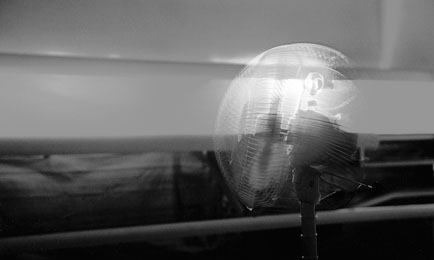| Bernhard Gál | essay |
There is a whole range of different emphases. Sound art can be very musical – or not. I myself think as a composer, as someone who comes from music. That means that my music for an installation setting can also stand on its own and has a purely musical quality. There are often extremely conceptual installations that work with sound, but in which it is clear that this sound is not music, but acoustic or technical phenomena that are directed into the ears. But in my case, my ambition is that it all should be considered music.

What fascinates me about the installation is the freedom one also leaves to
the audience: How long does an individual remain in the space? (In contrast
to a concert situation, in which one sits in place for a certain part for
so and so long, more or less.) What fascinates me is also the possibility
of co-determining many factors of the work and of controlling the parameters:
light, entry situations, approaching a work. For me, the ideal would be to
create an installation space that is visually and acoustically detached from
the rest, the surroundings. But this situation is rare. In a gallery, for
example, often somebody is sitting and telephoning and at the same time feeling
irritated by the installation. The artist, in turn, is irritated that someone
is working in the middle of his installation. And in a concert situation,
one has to deal with other criteria: for example, escape routes, the audience
cannot move around freely or lie down on the floor, one can’t simply
switch off the light. At installations, especially when they remain in place
for a longer period, one simply has time to get involved specifically with
this site, and one can also explore a lot during preparation: Can I do this?
Is it permitted? How can I deal with the various difficulties that arise?
Mitch Cohen translation. [Extract of: »Ortsbestimmungen. Stefan Fricke im Gespräch mit Bernhard Gál«, in: Bernhard Gál: Installationen/Installations, hg. v. Ingrid Beirer, Berliner Künstlerprogramm des DAAD, Heidelberg: Kehrer 2005, S. 64–73]
Mitch Cohen translation. [Extract of: »Ortsbestimmungen. Stefan Fricke im Gespräch mit Bernhard Gál«, in: Bernhard Gál: Installationen/Installations, hg. v. Ingrid Beirer, Berliner Künstlerprogramm des DAAD, Heidelberg: Kehrer 2005, S. 64–73]

